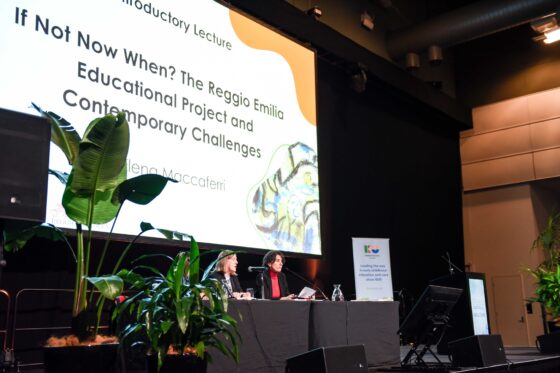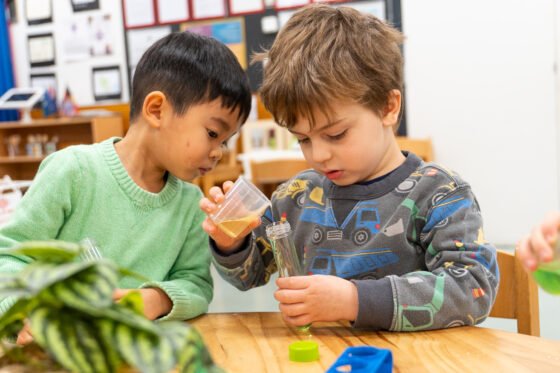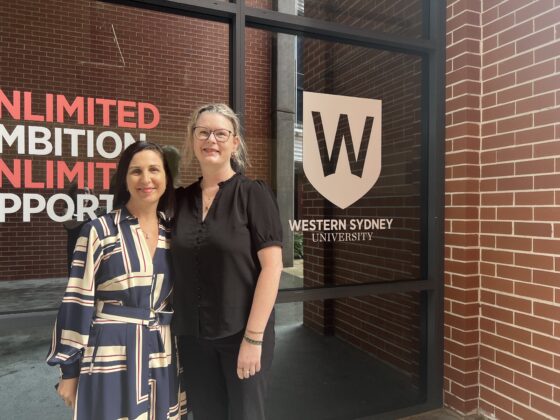Research on early childhood transitions highlights that a smooth, welcoming start to School is foundational to children’s long-term educational success and wellbeing (Peters, 2010). At IGS, we embrace these insights, recognising that the transition to School has broad implications for children’s learning, social development and future attitudes toward education. In response to these findings and long-held educational beliefs, we have developed the Beginning to Belonging program, a bespoke transition initiative that ensures our youngest students and their families feel genuinely connected to our community from Day 1 of Kindergarten.

In her research-based analysis, Director of Early Learning Victoria Kirkwood has drawn on a range of studies to clarify key aspects of school transition, providing Early Learning educators and Kindergarten teachers with essential insights. By distilling these findings, Ms Kirkwood has helped families and educators collaborate and translate evidence based practice and research into tangible ways to support making children’s transition to School a positive one, leading to improved outcomes for young learners as they begin their journeys as students.
Her work highlights the benefits of a well-prepared transition, showing that children who experience continuity and security during this shift are more likely to succeed academically and socially. This foundation is crucial for fostering resilience, independence, and social competence in our youngest learners.
The Beginning to Belonging program at IGS is designed in alignment with these findings, fostering early, supportive relationships that encourage confidence and curiosity. Last week, our new students embarked on their first session, taking part in a lively music class led by our Primary Music teachers. The children sang and practised body percussion in the primary school music classroom. In the hall, they tackled an obstacle course designed by the Primary PDHPE staff to improve coordination and their spatial awareness.
This morning, as the third part of the program, ELC children will attend an immersive language session as they continue to learn their second language, followed by play on the roof!
These activities introduce children to the school setting, enabling them to build familiarity with teachers and peers and experience the joy of learning in a safe, structured environment.
Through the Beginning to Belonging program, IGS is focused on creating a welcoming space where every child feels valued and ready to embark on their learning journey, setting the foundation for a positive and successful school experience.
References
Peters, S. (2010). Literature review: Transition from early childhood education to school. Report to the Ministry of Education, New Zealand.
Connor, J., & Linke, P. (2012). Your child’s first year at school. Getting off to a good start: A guide for parents. Early Childhood Australia and Australian Principals Association.
Dockett, S. & Perry, B. (2014). Continuity of Learning: A resource to support effective transition to school and school age care. Canberra, ACT: Australian Government Department of Education
Fabian, H & Dunlop, A. W. (2007). Outcomes of good practices in transition processes for children entering primary school. Retrieved from https://files.eric.ed.gov/fulltext/ED522698.pdf
Margetts, K., & Kienig, A. (Eds) (2013). International perspectives on transition to school: Reconceptualising beliefs, policy and practice. Routledge.
NSW Department of Education. (2021). Transition to School Guide for Early Childhood Education. NSW Government.
OECD. Publishing. (2017). Starting Strong V-Transitions from early Childhood Education and Care to Primary Education. OECD Publishing.
Rosier, K., & McDonald, M. (2011). Promoting positive education and care transitions for children. Melbourne: Australian Institute of Family Studies.








